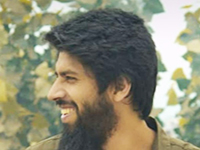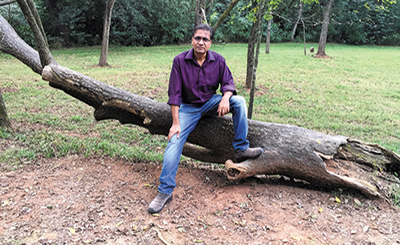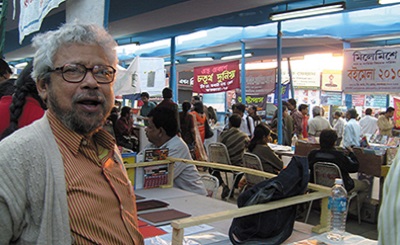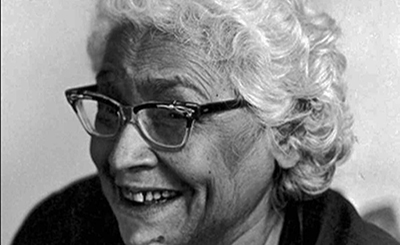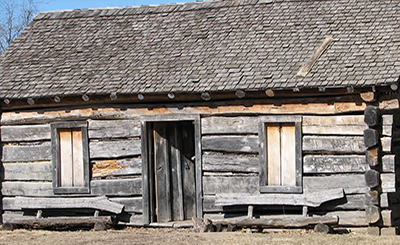
‘Let me see. You could go via rope and scaffold, if you don’t mind hanging around a bit’.
— Frogs, Aristophanes.
...
‘Anyone can ‘come back’ to his native country, if he belongs there still; nothing need have happened to him at all. But when an exile comes home he ‘returns’.
— Frogs, Aristophanes.
“Yot-tam poz pazi, tot-tam alam dazi”
( Until truth reveals itself, the universe would be ablaze)
— A madman’s chant, heard on the streets of Kashmir, my home.
ACT I
“I was born on 15 June 1992,” I answered...
“...And we meet, at last!” said Charon, the aged ferryman of the dead,
after a long pause, limping towards me, his gold crutch shining in the dark.
He sat across me, resting his crutch on the mahogany table between us.
The Interrogation had begun.
Charon lit his stuffed-pipe, filling the room with a dense smoke.
He leaned over, carefully examining my face, addressing me condescendingly:
“Still writing poems in the Smoke of Bombs?
Still being Prince Myshkin, the Idiot?
Still preserving manuscripts that we cannot allow to be read?
Still seeing the dead clinging to the living?
You must think you will save your city!
And you keep writing . . . writing poems, is it?”
His personnel had confiscated my manuscripts, burning
them in the corner, in the Name of Harpocrates, the god of silence.
The fire was gradually growing, feeding off the allegories in my poems.
The dead had clung to me in Charon’s room.
“Didn’t you ferry Dionysus across the River Styx to bring back Aeschylus?
I asked feverishly, my lips quivering.
Did bringing a poet back from the Land of the Dead mean nothing to you?
Or was it just for the Obols? Are Obols then your God?”
The calendar hanging on the wall was marked in soot, on certain dates.
Interrupting me, in rage, Charon spurted out:
“Ah! The poor drunken Dionysus, knowing nothing of the State Policies. He cares only for art! And what is to be said of great Aeschylus! The great wretched poet! Exposing our war on paper. I love my Obols! I live for them! I wouldn’t care if the city crumbles unceasingly, or is resurrected. I am loyal to Hades, my only State, my only home, loyal to Pluto, God of the Underworld. I will wound, threaten, violate and legislate, by only His orders.
Bombs will detonate in the protest march tomorrow, in your city (he pointed towards a sooty mark on the calendar). Many will die. I get to ferry them all. There will be countless deaths. The dead shall bring me my Obols. MY OBOLS! And you will be writing hopeless poems in your room, create art?! He laughed hysterically, and almost whispering to himself said:
“Thou art blind, poet! Thou art mad.
Your manuscripts . . . what good are they, what good is paper?
Thou art blind”
I averted my gaze off the calendar and peered at my ashy palms: I saw hundreds of coffins that will float by the streets tomorrow like lilies on the river in grandmother’s tales. I heard the songs that will be sung for the sons of death.
[I hear screams every time I strike a parenthesis. My vision is cordoned every time I strike a comma]
I said nothing to Charon.
I felt like concrete smashed to smithereens by hammers held by gods.
Was this defeat I had tasted?
ACT II
“To the gallows in Hades!” shouted Charon, as he left and one of his personnel stamped an inky mark on the chest over my shirt, forcing me towards the ferry, pushing me forward.
On the way I saw a thousand feet and a thousand faces dragged by the army to unknown ends; some were buried alive, others asphyxiated in gas chambers made of shiny glass— balladeers and farmers, bakers, cobblers and potters, street vendors and ironsmiths…
Sophocles and Euripides drew buckets from the Well of Tears,
trying to extinguish the burning anguish of Mourners.
[Who was I? Was I a dead man, a madman, a haunted city, an infant elegizing in the womb,
a room full of shattered metaphors? What part of my city was I in? I wondered. An underground death camp that goes by the name of Paradise?]
Xanthias, in a bureaucratic overcoat with starched erect collars, his face shadowed by his big round hat, bedecked with corals and rubies was distributing pamphlets and gluing posters to walls.
They read:
WE, THE PEOPLE OF INDIA, have solemnly resolved to constitute India into a SOVEREIGN, DEMOCRATIC, REPUBLIC and to secure to all its citizens:
JUSTICE, social, economic and political;
LIBERTY of thought, expression, belief, faith and worship;
EQUALITY of status and of opportunity; and to promote among them all
FRATERNITY assuring the dignity of the individual and the unity and integrity of the Nation;
IN OUR CONSTITUENT ASSEMBLY this 26th day of November, 1949, do HEREBY ADOPT, ENACT AND GIVE TO OURSELVES THIS CONSTITUTION.
My hands and feet were fettered. Charon effortlessly pushed the ferry through the deathly fog.
“Here we go, son!” cried Charon, sailing through the River Styx.
A multitude of birds flew over us, squeaking absurdly.
Were they mourning, or praising Pluto for his justice?
“To the gallows! To the gallows! My King! My home!” muttered Charon as he sniffed the air like a trained dog of the army’s Dog Regiment.
***
That’s where I last saw Dionysus; he wept looking at me and
lit his robes on fire, vanishing like a phoenix.
I wanted to ask him if he would still sloganeer ‘art for art’s sake’.
ACT III
I see the noose moving like a pendulum,
and the hangman waiting. . . Is it after hanging, time really begins?
Charon drags me towards the scaffold, in the busy market square of Hades. Onlookers wait for the day’s spectacle. Aeacus, the hangman, covers my head with the cloth of death as he unfurls the whip of fire in his silver-hand.
[Is this how poets die, hanging by their necks, in darkness?]
Last prayer:
O’ swarm of blessed birds, O’ Ababeel,
circumambulating Baitul Mamur, take my poems to God, hand them over, and tell God: a poet has offered his eyes.
God, I invite you to my Wasteland.
More from The Byword
Comments
*Comments will be moderated



